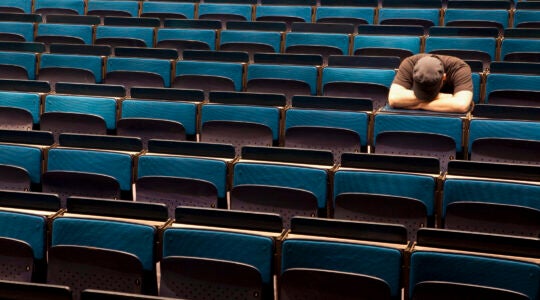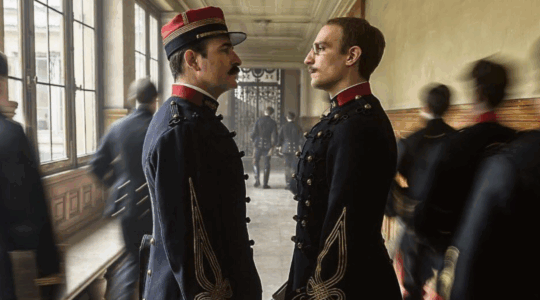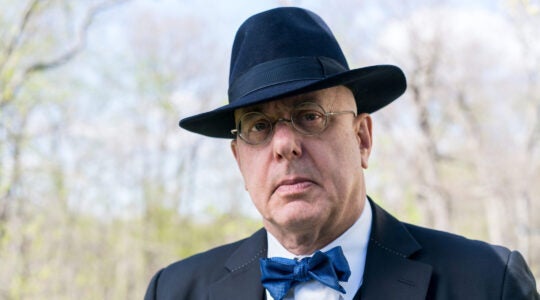Lamentations over the disappearance of “peoplehood” among America’s younger Jewish adults, complete with citations of research showing declining ethnic ties, have proliferated recently in earnest sermons and articles. However, a new study of younger American Jewish leaders funded by the Avi Chai Foundation reveals that sorrow is misplaced, although concern and action are needed.
The leadership cadre among American Jews ages 22 to 40 are not less attached to their Jewishness than previous generations, but they are differently attached, and it is critically important to the future of the American Jewish community to understand those differences.
Older American Jews, whether or not they were formally religious, typically felt less self-conscious among Jewish co-religionists, who they regarded as a kind of family. In contrast, in Avi Chai interviews with younger American Jewish leaders, writers, artists and entrepreneurs in their 20s and 30s, many spoke about “not wanting to be restricted to the tribe.” The concept of ethnic peoplehood, the world divided into “us” and “them,” was not salient.
On the other hand, in greater depth and numbers than their parents, younger American Jewish leaders embrace the cultural “nucleus,” the particulars of Jewish culture, intellectual heritage, social values and religion. For many among today’s young American Jews, cultural content is compelling, kinship less so.
Today’s younger Jews disagree with observers who say this means their ethnicity is declining. They insist that their ideas of ethnicity are different from those of their parents. My Avi Chai research interviewees said, “I feel deeply, Jewishly ethnic,” but they defined Jewish music, food, books, comedy and cultural performance, family styles, social values, and religious rituals as the primary expressions of their ethnicity.
Young Jewish leaders, of course, have a different profile than others of their generation, which includes both highly and weakly identified Jews. Among all age groups, the vast majority of non-leaders exist along a continuum that stretches from mild interest in to complete apathy toward things Jewish. Other distinctions are also important when we broaden our scope to the larger population of American Jews ages 22 to 40.
However, in some discussions, all younger Jews are dumped into the same statistical pot to demonstrate the demise of peoplehood, and this obscures crucial information about this diverse group. For example, the children of intermarriage score stunningly lower than children of two Jewish parents in every measure of peoplehood. When their responses are folded into overall percentages, they skew the picture.
Today, as in past decades, life cycle has a sweeping impact: marriage to a Jew creates an upsurge in peoplehood connections, and starting a family produces the strongest upsurge of all. Since close to three-quarters of children who grew up in in-married Jewish homes marry Jews — and more than three-quarters of those who grew up in intermarried households marry non-Jews — having two Jewish parents predisposes young Jews to fall into the statistical grouping with greater connections to Jews and Jewishness.
Some younger American Jews view social justice as the raison d’etre of Judaism as a religious culture. However, unlike earlier generations who found social justice the most acceptably American “Jewish” teachings, today’s young American Jews don’t want to “blend in” through assimilation. Jewishly connected and active young Americans in general sit comfortably in their American Jewish skins. Less likely to change their names (and their noses), many pursue social justice and practice Jewish religious rituals at the same time.
Some young American Jews associate primarily with other young Americans who see the world through post-nationalist, global eyes. They are sensitive to what they perceive to be moral weaknesses and political mistakes associated with the American and Israeli governments. Many expect the countries they feel attached to — like the United States and Israel — to live up to high moral standards. They are anxious for Judaism, and for Israel, to be forces for good in the world. Among the leaders, many who articulate policy critiques travel to Israel frequently, and view themselves as supporters of Israel — but they do not expect Israel to be the center of their Jewish lives. Their criticism of Israeli policies reflects not a lack of interest in Israel but rather redefinition of Israel-diaspora relationships.
Their unromantic assessment of Israel is often accompanied by a romantic fascination with the Jewish diaspora experience. This attraction expresses itself in a revival of interest in ethnic Jewish languages, literatures, and cultures, and especially Jewish music from around the world.
Many young Jews intensely dislike and resent name-calling such as “self-hating Jew,” which they view as an attempt to manipulate public opinion and silence critical thinking. Mention of the Holocaust is not a “magic bullet” for them — quite the contrary — especially when it appears to them that the Shoah is being exploited for political reasons. Significantly, most young Jews today do not deny or avoid the fact of their Jewishness, but substantial minorities feel antagonistic to or apathetic about Israel and the concept of international Jewish responsibility.
Any picture of the relationship of younger American Jews to Israel and Jewish peoplehood would be incomplete without also including a minority among their age cohort who might be termed “the young protectionists” or “the new Zionists.” As individuals, they feel committed to Jewish peoplehood, and often come to Israel’s defense with a deep passion. The new Zionists include young Americans from all walks of life, and all wings of Judaism. Generally they are more conscious than others of their age of Jewish marginality and vulnerability, and are concerned about Jews being blindsided by fate.
Some older Jews wonder if cultural connections can really take the place of visceral tribalism: Can attending a JDub concert featuring North African Jewish musical motifs — along with both Jewish and non-Jewish fans — really be an act of ethnic identification, and is this kind of identification transmittable to the next generation?
Here then is a profound challenge to today’s establishment leaders and institutions: younger American Jews respond to Jewish culture and Jewish activities, but many are unengaged by perceived differences between Jews and non-Jews. Some are attracted to Jewish social justice and educational activities, but unresponsive to activities to “protect” Jews, since they don’t feel vulnerable or different. As a result, we can’t expect to push the buttons of ethnic solidarity that worked so well — and so easily — for earlier generations (and often spanned the religious-secular divide).
Instead, we need complex approaches to all three groups: those young adults who are dynamic “defenders of the State,” those who are attached but critical, and the majority, who run the gamut from passively — if not deeply — pro-Israel to apathetic or uninvolved. Different strategies will be most successful with each group.
It is crucial, for example, to actually listen to and respond honestly to those who ask critical questions, while at the same time conveying more balanced judgments. For the quiescent, not-very-well-informed majority, education that includes cultural elements — books, music, films — can provide emotional bonds as well as useful information. Not least, we are challenged to work with the younger cohort of American Jewish leaders, cultural shapers and entrepreneurs in the creation and support of a strong Jewish nucleus. n
Sylvia Barack Fishman, chair of Brandeis University’s Near Eastern and Judaic Studies Department, is the Joseph and Esther Foster Professor of Judaic Studies, and the co-director of the Hadassah-Brandeis Institute.
The New York Jewish Week brings you the stories behind the headlines, keeping you connected to Jewish life in New York. Help sustain the reporting you trust by donating today.




